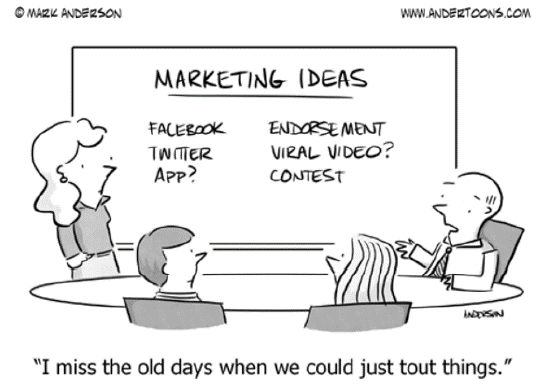
3 Ways To Stop Cybercriminals Cold
In Today’s Crazy Times
You’ve seen it. You’ve probably even experienced it. For what feels like forever now, just about everyone has been forced to modify priorities.
As a business owner, you’ve probably been focused on shifting your business to accommodate this world crisis.
You may even be investing more of your time in retaining customers and generating new cash flow.
If you're like most people out there, you've barely even had time to think about cyber security and protecting your important data.
Maybe you've heard the saying "Never let a crisis go to waste." It's as if cybercriminals wrote it because that's exactly what they're thinking right now.
In fact, they’re probably working overtime right now to craft new malware while our lives have been turned upside down.
As a business owner, you’ve probably been focused on shifting your business to accommodate this world crisis.
You may even be investing more of your time in retaining customers and generating new cash flow.
If you're like most people out there, you've barely even had time to think about cyber security and protecting your important data.
Maybe you've heard the saying "Never let a crisis go to waste." It's as if cybercriminals wrote it because that's exactly what they're thinking right now.
In fact, they’re probably working overtime right now to craft new malware while our lives have been turned upside down.
Yes, as you're focused on your business, hackers are finding new ways into your IT network.
Their objective is to steal data and passwords, compromise your clients’ private information and even demand large ransoms.
Did you know that cybercrime is expected to cost $6 trillion (that’s a 6 followed by 12 zeroes!) by the year 2021? But, now is when hackers are expected to do their absolute most damage.
Here are three strategies you can use right now to help protect your business data, money and productivity during these unusual times.
1. Guard Your Inbox.
People aren’t paying as much attention as they usually do, which makes it the perfect
Continued on page 2
Their objective is to steal data and passwords, compromise your clients’ private information and even demand large ransoms.
Did you know that cybercrime is expected to cost $6 trillion (that’s a 6 followed by 12 zeroes!) by the year 2021? But, now is when hackers are expected to do their absolute most damage.
Here are three strategies you can use right now to help protect your business data, money and productivity during these unusual times.
1. Guard Your Inbox.
People aren’t paying as much attention as they usually do, which makes it the perfect
Continued on page 2
Continued from page 1
time for cyber-attackers to send e-mails with dangerous malware, worms and viruses. Always carefully inspect every e-mail received and make sure you know the sender.
Here’s another tip: avoid clicking links in the e-mail unless it’s abundantly clear where they go. Also, don’t ever download an attachment unless you know who sent it and what it is. While it takes a few extra seconds, double check by calling the person who sent you the attachment. Better safe than sorry. Make sure you communicate these safeguards to everyone on your team, especially if they are working from home.
2. Secure Your Company-Based Technologies.
During crises like this one, your passwords are a critical first line of defense. Don’t wait for your company’s finance data to be compromised. Make a point now to reevaluate your passwords and direct your team to create stronger passwords. Too many employees are guilty of using the same password across multiple applications. Use a unique password for every single application.
Your team may tend to save your passwords in their web browser. Don’t do this. A skilled hacker can bypass the PIN required to access your saved passwords. Once they have the password or PIN to access your web browser, they can steal as much as they want – credit card information, customers' private data and more! We recommend our clients use a password manager. It’s convenient, but more importantly, it’s far more secure.
time for cyber-attackers to send e-mails with dangerous malware, worms and viruses. Always carefully inspect every e-mail received and make sure you know the sender.
Here’s another tip: avoid clicking links in the e-mail unless it’s abundantly clear where they go. Also, don’t ever download an attachment unless you know who sent it and what it is. While it takes a few extra seconds, double check by calling the person who sent you the attachment. Better safe than sorry. Make sure you communicate these safeguards to everyone on your team, especially if they are working from home.
2. Secure Your Company-Based Technologies.
During crises like this one, your passwords are a critical first line of defense. Don’t wait for your company’s finance data to be compromised. Make a point now to reevaluate your passwords and direct your team to create stronger passwords. Too many employees are guilty of using the same password across multiple applications. Use a unique password for every single application.
Your team may tend to save your passwords in their web browser. Don’t do this. A skilled hacker can bypass the PIN required to access your saved passwords. Once they have the password or PIN to access your web browser, they can steal as much as they want – credit card information, customers' private data and more! We recommend our clients use a password manager. It’s convenient, but more importantly, it’s far more secure.
3. Secure Your Home-Based Technologies.
With the coronavirus pandemic, far more businesses are encouraging their employees to work from home. That means a lot of people are working from the living room or kitchen without giving a second thought to security. This negligence is an invitation to new cybercrimes.
Here are a few tips to ensure your work-from-home employees are keeping your network and data secure: make sure your employees and contractors are not using their home computers or devices when they are working from home. Add a firewall to ALL computers and devices that will be utilized at home. Finally, your network and data are not truly secure unless your employees utilize a VPN (virtual private network).
There’s no need to invite in more problems by letting your computer and network security slide during these times. We would be happy to help you create or even improve your work-from-home environment.
While this coronavirus scare has negatively affected countless businesses, we are proud to say we are open and continuously servicing our customers. If you need additional security advice or would like to have a consultation to discuss how to keep your data safe or how we can help you work more effectively, simply connect with us today.
"Did you know that cybercrime is expected to cost $6 trillion
(that's a 6 followed by 12 zeroes!) by the year 2021?"
(that's a 6 followed by 12 zeroes!) by the year 2021?"

Enable your workforce with a
Virtual Desktop!
Do you have the infrastructure in place to allow your employees to securely access your data and answer the phones remotely? Don't let the Coronavirus bring your business to a halt. Empower your workforce, give them access to the tools and content they need to be productive no matter when or where they work.
Visit: bensingerconsulting.com/virtual-desktop/ or call our office at (602) 362-0202.
How To Deal With Increasing
Customer Expectations
The more you do for customers, the more they expect. That is the nature of customer service.
Excellent service providers scramble to meet the expectations of customers who have become accustomed to great service.
Aggressive competitors continue to bump up their offerings in an attempt to take your customers from you. This has resulted in a perpetual desire by customers for more, better, different and/or improved.
In most cases, "good enough" isn't enough. The great art and science of business is to improve product and/or service offerings without giving up margins or increasing prices beyond what customers are willing to pay.
It really is about adding value without spending too much to do it. Any business that can’t do this will be relegated to competing at the low end of the market on price alone, and that is a difficult place to be.
Rally your team, from engineering and manufacturing to sales and support, to regularly brainstorm how you can profitably grow your value proposition. Customers will increasingly demand it.
Here are eight things you can do about them.
1. Find out what is important to customers: what they require and what they desire. You’re not clairvoyant, so routinely ask customers for input.
Excellent service providers scramble to meet the expectations of customers who have become accustomed to great service.
Aggressive competitors continue to bump up their offerings in an attempt to take your customers from you. This has resulted in a perpetual desire by customers for more, better, different and/or improved.
In most cases, "good enough" isn't enough. The great art and science of business is to improve product and/or service offerings without giving up margins or increasing prices beyond what customers are willing to pay.
It really is about adding value without spending too much to do it. Any business that can’t do this will be relegated to competing at the low end of the market on price alone, and that is a difficult place to be.
Rally your team, from engineering and manufacturing to sales and support, to regularly brainstorm how you can profitably grow your value proposition. Customers will increasingly demand it.
Here are eight things you can do about them.
1. Find out what is important to customers: what they require and what they desire. You’re not clairvoyant, so routinely ask customers for input.

2. Explain your value proposition when you must say no. If you can’t do something the customer wants, explain why. But see if there is something acceptable you can do instead.
3. Educate customers about the value you create for them. If they don’t know about it or appreciate it, it isn’t valuable.
4. Hold quarterly sessions with your team to brainstorm how to add value to the customer experience.
5. Evaluate the entire customer experience. Look for failure points and irritations that can be eliminated and improvements that can be made.
6. Pay more attention to your customers than to your competition. Know what your competitor is doing, but put your customer at the center of your focus.
7. Pleasantly surprise customers whenever you can. Work with your team to brainstorm ideas on how to do that.
8. Treat better customers better. Treat all customers well, but those who spend more should get preferential treatment.

Mark Sanborn, CSP, CPAE, is the president of Sanborn & Associates, Inc., an “idea studio” that seeks to motivate and develop leaders in and outside of business. He’s the best-selling author of books like Fred Factor and The Potential Principle and a noted expert on leadership, team building, customer service and company change.
He holds the Certified Speaking Professional designation from the National Speakers Association and is a member of the Speaker Hall of Fame. Check out any of his excellent books, his video series “Team Building: How to Motivate and Manage People” or his website, marksanborn.com, to learn more.
He holds the Certified Speaking Professional designation from the National Speakers Association and is a member of the Speaker Hall of Fame. Check out any of his excellent books, his video series “Team Building: How to Motivate and Manage People” or his website, marksanborn.com, to learn more.
GET WEEKLY CYBERSECURITY TIPS IN YOUR EMAIL!
VISIT BENSINGERCONSULTING.COM/TIPS/
Do These 3 Things To Make Sure You Don’t Get Hacked
Train up. Get your entire team trained on IT security fundamentals and best practices. They should know how to create strong passwords, how to safely access the web and how to securely use e-mail – including how to identify phishing scams. They should have a clear understanding of today’s threats and how to be proactive in addressing those threats.
Invest in good tech. You should be invested in solid malware protection, including antivirus software and firewalls. All of your data should be backed up to the cloud and expertly secured using encryption software. You should also be invested in threat monitoring.
Establish relevant systems and processes. Have standard operating procedures (SOP) in place to train employees, respond to threats and access networks. For example, are employees connecting with unverified devices from home? Establish rules on what can and cannot happen. Another example: are your cloud backups set up correctly? Is someone checking it? Again, have SOP in place to address these kinds of issues.Small Business Trends, Feb. 13, 2020
Train up. Get your entire team trained on IT security fundamentals and best practices. They should know how to create strong passwords, how to safely access the web and how to securely use e-mail – including how to identify phishing scams. They should have a clear understanding of today’s threats and how to be proactive in addressing those threats.
Invest in good tech. You should be invested in solid malware protection, including antivirus software and firewalls. All of your data should be backed up to the cloud and expertly secured using encryption software. You should also be invested in threat monitoring.
Establish relevant systems and processes. Have standard operating procedures (SOP) in place to train employees, respond to threats and access networks. For example, are employees connecting with unverified devices from home? Establish rules on what can and cannot happen. Another example: are your cloud backups set up correctly? Is someone checking it? Again, have SOP in place to address these kinds of issues.Small Business Trends, Feb. 13, 2020
3 Ways To Grow Your Business Without Spending A Dime
Follow a thought leader in your industry. Whether you follow them on social media or their blog, keep up-to-date with the issues they’re talking about. Then do further research into those issues. This keeps you in the know and more likely to learn something you can easily apply to your own business.
Use your best testimonials. If someone posts a great review on Google, for example, reach out and ask about using it in your marketing. Or reach out to customers who you already have a good relationship with and ask if they’re willing to give you a testimonial. It builds credibility.
Partner up. It pays to develop partnerships with existing vendors or other businesses that are adjacent to yours. That is to say, look for opportunities to share customers. If you have a customer who’s looking for a specific service you don’t offer, point them to someone who does (your partner). And your partner will do the same. Reach out into your business community and see what kind of relationships you can form. Business Insider, Feb. 13, 2020
Follow a thought leader in your industry. Whether you follow them on social media or their blog, keep up-to-date with the issues they’re talking about. Then do further research into those issues. This keeps you in the know and more likely to learn something you can easily apply to your own business.
Use your best testimonials. If someone posts a great review on Google, for example, reach out and ask about using it in your marketing. Or reach out to customers who you already have a good relationship with and ask if they’re willing to give you a testimonial. It builds credibility.
Partner up. It pays to develop partnerships with existing vendors or other businesses that are adjacent to yours. That is to say, look for opportunities to share customers. If you have a customer who’s looking for a specific service you don’t offer, point them to someone who does (your partner). And your partner will do the same. Reach out into your business community and see what kind of relationships you can form. Business Insider, Feb. 13, 2020

Get a FREE, No Obligation, Security And Network Assessment!

Would you like a 2nd opinion about your IT Services, but don’t want your current IT company to know?
Would you like discreet confirmation that your security services are really keeping you secure? And that your backups are really backing up?
Contact us for your FREE, No Obligation, Security And Network Assessment!
We will contact you prior to beginning our assessment. Nothing will be installed on your network. When we’re done, we’ll provide you with written documentation of our findings at NO OBLIGATION to you.
Call (602) 362-0202
or use the form below.





